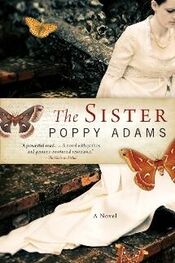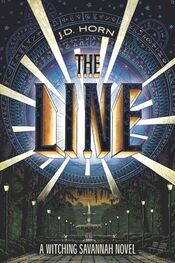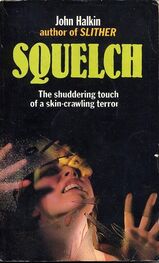It seemed longer but later Maud said that really it was just a minute before they got her back again. She was resuscitated in front of the porch by the ambulance men. I was in the driveway, watching, when Maud rushed up to me, red-faced and frantic, tugging at my arm in a frenzy. Her usual calm and poise had been shattered, giving way to raw terror. She was leaning slightly forward, as if she were about to vomit, her hair angry, eyes acute and desperate.
“Tell me what happened,” she pleaded. I said nothing. I stared at the hydrangea crawling up the side of the porch, its branches woody, split and peeling. If it weren’t for the fresh buds appearing at the tips, you could have been forgiven for thinking it was dead. I had already told her how Vivi had slipped off the tower, how she’d tried to catch her dancing toast.
“Ginny, darling,” she sobbed, folding her arm round my waist, pulling me gently to her, squeezing her cheek to mine, her mouth near my ear. “I love you,” she whispered slowly, and I knew it was true. “I love you and I don’t blame you. I just need to know the truth. ” I could feel her whole body trembling, her tears gluing our cheeks together. My mother wasn’t this wretched person; she was usually the source of all strength. I stood rigid, thinking of the wetness on my cheek, feeling her shaking and trying to understand, trying to fathom what she wasn’t blaming me for.
The next minute Clive was striding towards us from where he’d been helping to lift Vivi into the ambulance. He looked at me as he approached, searching my eyes and finding my confusion as Maud clung to me. He leaned over and kissed my forehead firmly while unclasping Maud’s hands from my waist.
“Come on. We’re going,” he said, pulling Maud towards him, fastening her arms round him and leading her off to the ambulance.
When they were sent home from the hospital that afternoon they had no news yet of Vivi’s prospects. Clive showed Maud into the library to get her a drink, which was what she needed at times of crisis. I helped to pour it. “Open the cabinet, get a glass, no not that one, the little one. Can you see the bottle that says Garvey’s?” I found it and put my finger on it. “That’s the one, finest old amontillado. Mother’s sherry.” I stayed out of my parents’ way after that but later in the day, as I passed their bedroom on the landing, I heard them arguing, my mother sobbing.
“It’s all my fault. I thought we could be a normal family.” She was hysterical.
“We are a normal family. Stop jumping to conclusions,” I heard Clive say softly.
“Her sister’s dying…. She’s not even crying…. She stood there staring at the shrubs.” Maud’s voice was scathing. “There must be something—”
“Pull yourself together,” Clive interrupted in a tone I’d never heard him use before, not unkind, but firm and authoritative. “Save your hysterics until you have the facts.”
I knew they were talking about me and guessed Maud was angry about something to do with me, but I had no idea what.
Half an hour later I was in the kitchen, huddled next to the wood stove with Basil, our elderly Great Dane, when I heard the front door’s brass goat’s-head door knocker being rattled. I went to open the door, and Dr. Moyse, our family doctor from Crewkerne, greeted me effusively.
In our household, Dr. Moyse was the most trusted member of the outside world. He had cured three of our evacuees of diphtheria, nursed Vivi and me through whooping cough and devised a potion for Clive’s gout. But everyone seemed to forget that he had consistently failed to rid me of the four warts that cursed the underside of my fingers, which I’d developed the habit of chewing when I was eight. In the end Clive froze them off with pure liquid nitrogen.
The doctor was a favorite of the village children, giving them rides in his white convertible and telling them gory stories between puffs on his pipe. He was in his mid-thirties, incredibly tall and lanky, stooping through most of the doorways even in our house, staying hunched when he was standing. He’d get to his knees to talk to children. He had curly blond hair, wore round rimless spectacles and carried a doctor’s case over his shoulders with straps like a sports bag. When he walked he put a little bound in his step as if he’d just got a piece of good news. But Dr. Moyse had always made me feel uneasy. He singled me out for little or long conversations, losing his casual manner and becoming more serious, as if allowing me the intimacy of confiding in him, making sure I was aware he was on my side. Maud wouldn’t have heard a bad word against him, and I suppose he was nice enough. He was patient and kind perhaps, but he got on my nerves. He’d come and find me, then ask me daft questions right when I was in the middle of something. That day, as usual, I didn’t feel much like talking to him.
“Ginny,” he said, “I came as quickly as I could.” I said nothing. I hadn’t known he was coming at all. I opened the door so he could get past me. I was still battling with why Maud was angry with me. “Your mother wanted to see me,” he said to clarify his presence. “Any news from the hospital?”
I shook my head. “Maud’s upstairs,” I said.
I left him in the hall and went into the library. A fire crackled and hissed in the grate. Wasps, butterflies and crickets, painted daintily on the tiled surround, were brought to life by the flickering amber flames. I sat on the smooth oak window seat looking out at the valley in the distance, reddened by the low sun, and the pretty terraces just outside, trapped in the shadow of the house. Two low box hedges with last summer’s topiary efforts were still vaguely evident, the stone steps disappearing into rough pastureland, which, in a couple of months’ time, would be waving with the rare meadow grasses Maud had sown there. Basil followed me in, his uncut claws tapping on the parquet floor as he walked. He rested his chin on my lap, his jowls cold and wet from lapping at his water bowl. From this position his eyes, atop his head like an alligator’s, gazed at me, blinking and steady, imploring me, I imagined, just to be happy. I stroked his head and his tail started to bash the window seat in appreciation, steady like a metronome.
Maud had told me that when I was born we were snowed in for a month. For six days and six nights the snow had fallen, until it had reached the height of the ground-floor sills. Maud said that when you sat right here on this window seat and looked out onto the Bulburrow valley you had the impression the house had sunk. The tops of the hedges on the south terrace looked like hedge trimmings scattered on the ground, and the stone goose that topped our fountain, stretching his neck and bill high into the air to spurt out the water, looked as if he were just managing to keep his head above the ground in a desperate bid to breathe. It was this weather at my birth that had apparently swayed the balance of my personality. Maud told me it had made me the stay-at-home type.
“Can I come in?” Dr. Moyse was at the library door. Basil padded over to sniff him, friendly, bottom low and wiggling in submission, looking for an alliance with all factions.
“No,” I said, because it was what I meant, even though I knew it wasn’t a polite answer. I turned back to the window, mainly to avoid my own insolence or the trouble it might get me in. The doctor ignored me and wandered in silently, pretending to look from one book spine to the next, musing among the shelves and the gallery of pictures that hung between them, mostly framed satirical sketches from Victorian periodicals—men in top hats, black trench coats and waders prancing about the countryside, bounding after insects in a bog or leaning precariously out of fast-moving trains, an enormous net in one hand and a bottle of poison in the other—reminders of a time when the pastime was at its most popular, when trainloads of Londoners would flock to the country for a weekend’s mothing.
Читать дальше





